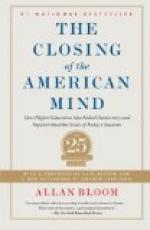Thus, in war time, there is the curious paradox of ever widening radicalism in thought, with constantly decreasing freedom in action and expression. When the discrepancy becomes too great, you have the explosion—Revolution. This cause hastened and made more extreme the Russian Revolution, which had been simmering for a century. It has not yet appeared in Germany because of the forty years of successful work in drilling the mind of the German people to march in goose-step; yet the increasing signs of questioning the infallibility of the existing regime and system in Germany give evidence that there, too, the conflict is at work.
With ourselves, the opposition appears, as yet, only in minor degree. Nevertheless, it is here. On the one hand, are the registration, conscription and espionage measures, the effort to control news, the governmental supervision of food supplies, transportation, production and corporation earnings, the war taxes. On the other hand, thought is so stimulated that everything is questioned: our political system, our social institutions—marriage, the family, education. As some one says, “Nothing is radical now.” We probably shall escape a sudden revolution, but the conflict must produce profound readjustment in every aspect of our life; for thought and action must come measurably together, since they are related as soul and body.
There are singular eddies in the main current both ways. For instance, the exigencies and sufferings of war produce a reaction toward narrower, orthodox forms of religion and a harsher spirit of nationalism; while in fields of action apart from the struggle, freedom and even license may increase, as in sex-relations. Nevertheless these cross-currents, while they may obscure, do not alter the main tendencies, which move swiftly and increasingly toward the essential conflict.
Even before our actual entrance into the War, its profound influence upon both our thinking and our conduct and institutions was evident. Now that we are in the conflict that influence is multiplied. We are aroused to new seriousness of thought. The frivolity and selfish pleasure-seeking that have marked our life for recent decades are decreasing. We may reasonably hope that the literature of superficial cleverness and smart cynicism, which has been in vogue for the last period, will have had its day, that the perpetrators of such literature will be, measurably speaking, without audience at the conclusion of the War.
The philosophy of complacency, at least, will be at an end, and the world will face with new earnestness the problem of life. This generation will be tired, perhaps exhausted, by the titanic struggle; but youth comes on, fresh and eager, with exhaustless vital energy, and the generations to come will take the heritage and work out the new philosophy. As Nature quickly and quietly covers the worst scars we make in her breast, so Man has a power of recovery, beyond all that we could dream. It is to that we must look, across the time of demoniac destruction.




